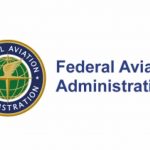Single-Pilot Operations Are Under Increased Scrutiny
A push to develop procedures and new flight deck functionality that supplant a pilot even for short time periods is receiving increased attention from global labor groups that fear a direct path to aircraft designed for single-pilot operations.
The Air Line Pilots Association (ALPA), International Federation of Air Line Pilots’ Associations and European Cockpit Association launched a joint campaign against single-pilot operations (SPO) this year without flagging any specific projects. Soon, targets emerged: projects underway at Airbus and Dassault as well as a European Union Aviation Safety Agency (EASA) study on extended minimum crew operations (EMCO) and SPO (AW&ST June 13-26, 2022, p. 32). EASA now says nothing will change before 2027, and SPO for commercial airline operations—if they ever happen—are much further off.
While regulators will drive any reduced-crew operations (RCO) timelines, at least two large industry stakeholders have considered plans with far more ambitious timetables than EASA’s latest public statements.
Airbus has pitched two new freighters to FedEx that would leverage having fewer pilots on board, Aviation Week has learned.
The more radical proposal is an A321F that would be type-rated for two pilots at the outset but would attain single-pilot approval over time, documents seen by Aviation Week suggest. The second concept is an A350F approved for EMCO—essentially permitting one pilot on the flight deck during low-workload cruise portions of the flight, which could lead to needing fewer pilots on long-haul flights that require relief crews under current regulations.
The ideas, pitched in early 2022 and dubbed Project Morgan, are not moving forward at the pace Airbus envisioned due primarily to regulatory hurdles. But details in the documents lay out the manufacturer’s thinking on how SPO could evolve.
Under Project Morgan, Airbus would further develop concepts trialed under its Dragonfly program, such as automated emergency descents. These would converge with EASA’s EMCO work, which focuses on evaluating the risks and potential benefits of allowing a single pilot on the flight deck during low-workload periods (AW&ST Jan. 24-Feb. 6, 2022, p. 50).
To read more, please follow the link




